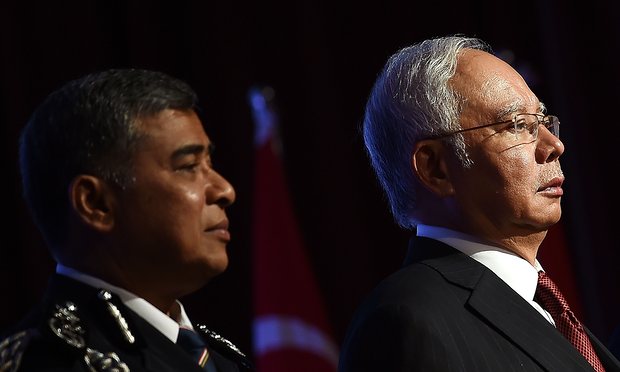How The NSC Act Will Affect All Of Us
The law comes into effect on 1 August 2016.
The National Security Council (NSC) Bill, which became a Law on 9 June, after being approved by Dewan Negara on 22 December last year, but without the express Royal Assent, is set to take effect on Monday, 1 August, as announced by Najib in a federal gazette dated 24 June that was published on the e-Federal Gazette site on 14 July.
What's worrying about the NSC Bill, though, is that unlike other Bills passed by the Parliament, it was deemed to have received Royal Assent without any amendments, as requested by the Conference of Rulers who were not happy with the NSC Bill in its present form, at the end of the 30-day period without the Yang di-Pertuan Agong's express assent, as permitted by Article 66(4A) of the Federal Constitution.
From 1 August 2016, PM Najib can:
1. Declare any area in the country as a "security area", because under the Clause 18 (1), he now has full discretion to decide so. Once an area has been declared as a "security area", all civil liberties will be suspended there and allow for special police powers to be administered by the NSC that PM Najib himself appoints.
2. Renew the initial declaration of "security area", which is for 6 months, to indefinitely, under the Clause 18 (3) and (4).
3. Take decisions without having to be transparent as all NSC's affairs, under the Clause 22-30, are done is absolute secrecy.
4. Order the security forces to arrest without warrant; stop and search; enter and search premises; take possession of any land, building or movable property.
5. NOT be held legally accountable, as under the Clause 38, no action or lawsuit can be brought against the NSC.
Even more frighteningly, the NSC Act 2016 brings back provisions of the now repealed ISA 1960 and gives Najib unfettered powers
While the NSC Act is under the direct authority of the PM (currently Najib), the repealed Internal Security Act (ISA) 1960 required the discretion of the Yang di-Pertuan Agong. Meaning the NSC Act, as noted by Concerned Lawyers for Justice, gives the government rights to bypass the powers and discretion of the Yang di-Pertuan Agong.
Further, while the PM still has to seek advice from the 8-man security council, which he himself appoints, he can, under the NSC Act, choose to ignore the advice.
While the BN Government has insisted that the NSC Act is a necessary step to counter threats to security in Malaysia, critics argue that it could be used to silence dissenting voices including people who question the 1MDB scandal. In fact, the Malaysian Bar has called it a "lurch towards an authoritarian government".
The fact that the implementation of the NSC Act comes at a time of heightened political tensions in the country and amid renewed calls by the opposition for Najib to resign over the 1MDB scandal has prompted Lawyers for Liberty's executive director Eric Paulsen to urge the government to suspend the implementation of the NSC Act and to consult all stakeholders regarding the many concerns that have been raised.
However, Najib said that the NSC Act was deliberately misinterpreted by politically-motivated fearmongers and is not the same as a declaration of national emergency.
Reiterated his earlier stand that the "government will never apologise for placing the safety and security of the Malaysian people first", Najib said that "these laws were necessary, and other countries have since followed" Malaysia's lead.
In recent times, the BN Government has used the colonial-era Sedition Act to arrest anyone who questioned or criticised Najib. Similarly, other draconian laws were used to jail opposition leaders and silence free speech by suspending media groups and blogs.
Last week, IGP Khalid said he would shut down rallies that demand Najib's resignation.
Executive Director of human rights group Suaram, Sevan Doraisamy says, "The likelihood of the NSC being utilised in order to crack down on any act of civil movement is likely to steadily increase as manoeuvring space for the Prime Minister decreases."

